Resin printing system manufacturer Onulis has launched the WRAPCure Certified, a post-curing unit designed for critical industries using Digital Light Processing (DLP) technology like military, medical, and ISO Certified sectors.
The system contains higher-intensity UV lights and provides traceable documentation, self-audit features, and component replacement choices, elevating the DLP post-curing experience. DLP printing technology results in partially cured parts, and requires extra exposure to ultraviolet (UV) light to complete the curing process and provide material properties which are in line with the material manufacturer’s published specifications. With the introduction of WRAPCure Certified, Onulis aims to solve critical shortcomings in the UV post-curing process.
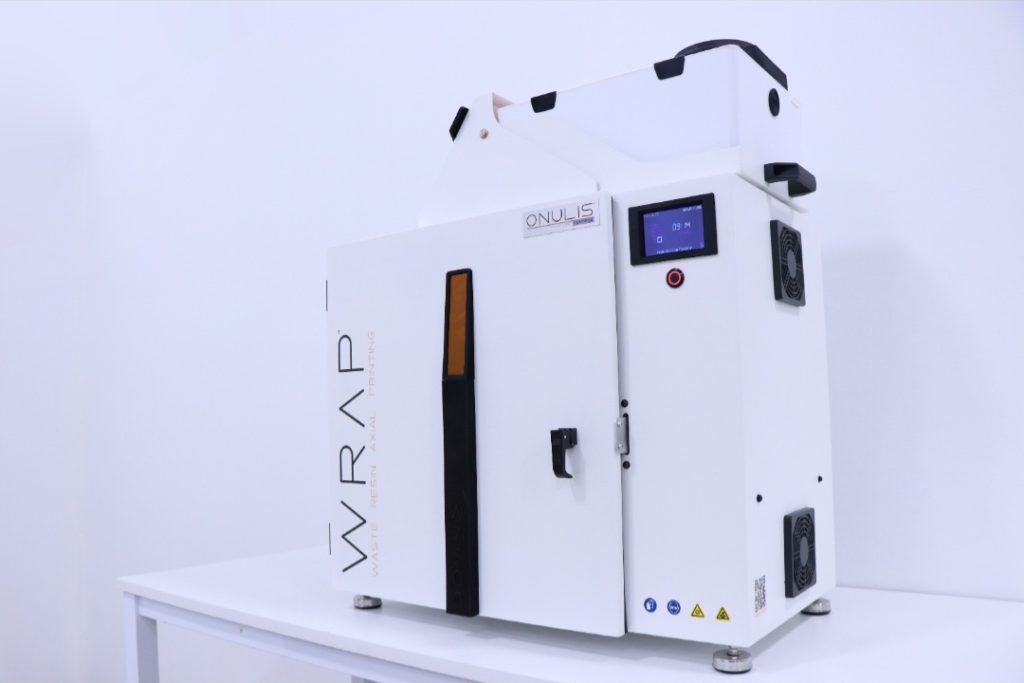
“WRAPCure Certified builds on the established platform of WRAPCure, being the industry’s only automated curing system to supply UV light to all surfaces simultaneously. All other available curing systems require an operator to manually rotate and flip a part to cure all sides. WRAPCure Certified does this fully automatically, while still providing the dual function of curing unused resin into a solid plastic for future use and safe disposal,” says Onulis.
The precision and reliability needed for critical applications
Existing UV post-curing systems do not provide wavelength or irradiance calibration documentation. Nor do they provide a means to measure or correct units in the field. They also fall short by not providing UV exposure to the downward-facing sections of components, demanding manual repositioning for uniform curing. Onulis’s system, in contrast, addresses this challenge by providing traceable inspection documentation with each unit and the design uniquely subjecting all facets of a part to high-intensity UV light concurrently, eliminating the necessity for manual intervention.
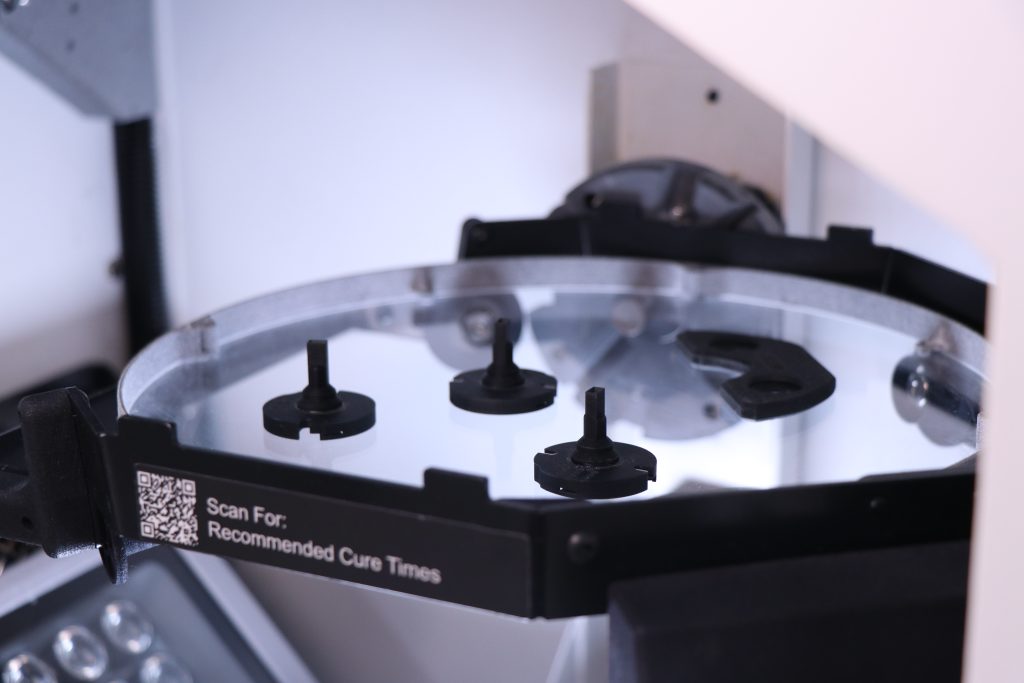
Some conventional UV post-curing methods have grappled with heat generation problems, which can distort components. These systems rely on wide-spectrum Halide bulbs, emitting uncontrolled heat, and necessitating manual part rotations to avert deformation. Onulis, however, has adopted a preferred approach using higher intensity, directed UV lights to ensure comprehensive part curing without the emission of detrimental infrared radiation, thereby preserving the structural integrity of parts. For the small subset of materials that do require a controlled heat exposure to obtain superior properties, material manufacturers recommend performing this with a programmable oven only after a full UV post-cure is complete to avoid warpage and distortion.
Onulis says, the military and medical sectors often produce parts that end up in critical applications. The intended functionality of these parts heavily relies on the material properties provided by the material manufacturers. When DLP-produced parts are created, they are typically only cured to a range of 75% to 90%, contingent upon the specific 3D printer manufacturer. For instance, the Stratasys Origin One machine can achieve up to 90% curing. However, across all DLP 3D printers, the final curing process occurs externally, within a post-curing apparatus after a part is fully cleaned and support structures are removed. The post-curing systems available in the market do not come equipped with precise measured values for wavelength or irradiance.
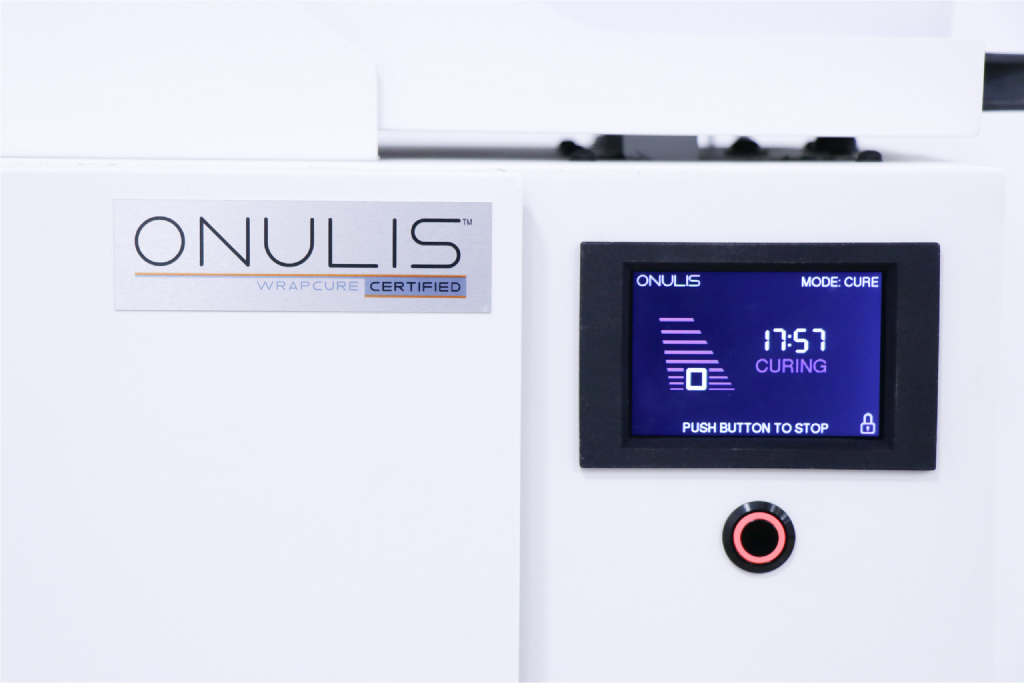
Today’s systems are subject to manufacturing tolerances, which left untested, present the potential for processes that do not meet material manufacturers’ minimum curing requirements. Over time, changes in the irradiance values of the light source introduce additional variations in the required UV light output leaving parts only partially cured. Existing market systems lack the means to verify the UV light source’s integrity at shipment or later after use. WRAPCure Certified was purpose-built to address these issues.
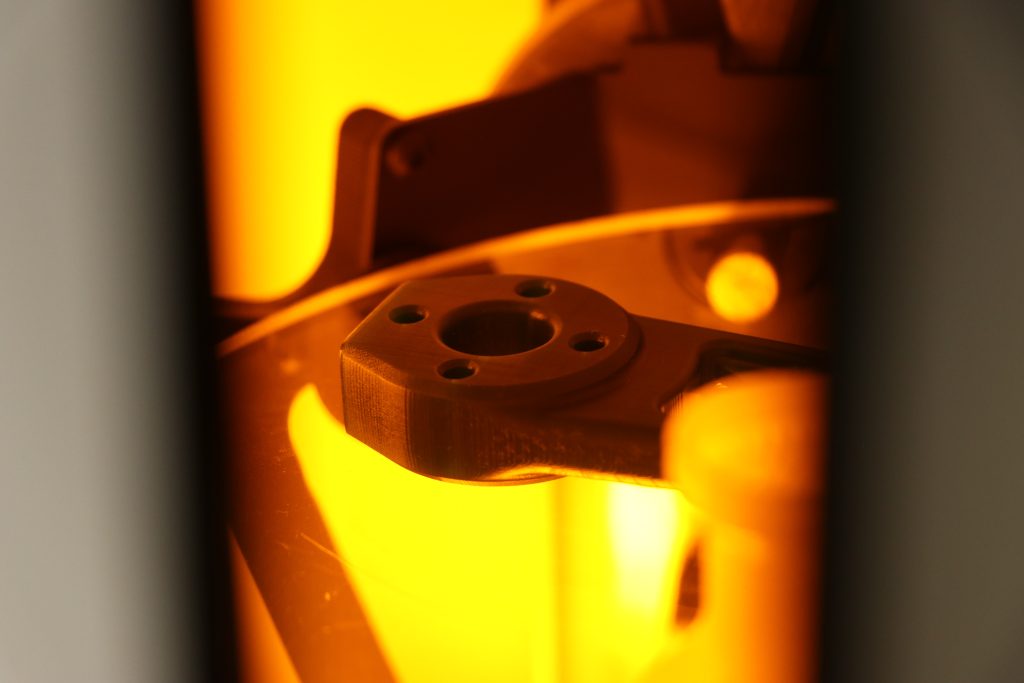
Ensuring ISO compliance for critical industries
Onulis emphasizes backing ISO 9000 Certified users through precise documentation with every WRAPCure Certified unit, ensuring adherence to industry standards. Users can also internally audit their system’s performance using a Self-Audit Kit, which includes a calibrated measurement instrument, a custom fixture, and traceability documentation. For sustained system integrity and curing consistency, Onulis provides a UV Recharge Pack enabling hassle-free replacement of lights and electronic drivers.
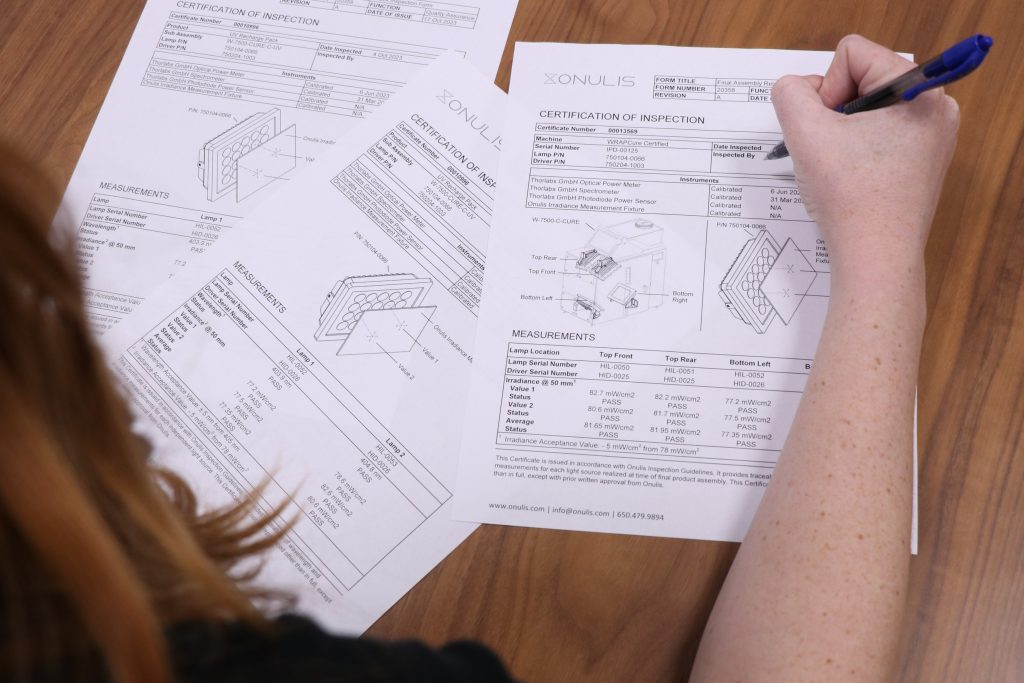
The high-powered UV sources in WRAPCure Certified offer two distinct advantages. Firstly, they deliver the necessary energy to meet material manufacturer standards without introducing excessive heat, which could deform parts. Each UV array is linked to a specific electronic driver circuit. Multiple measurements are conducted on each array, and these “light packs” are documented as a unit during the initial manufacturing process. They are also reassessed and documented when integrated into the final system assembly, guaranteeing the certification of the entire unit. These certifications are integrated into each system for traceability.
Secondly, the UV source and electronic driver light pack were purposefully designed for effortless replacement. The Self-Audit Kit empowers users to measure the system’s UV light source to ensure their printed parts will adhere to manufacturer specifications. When the light source deviates from these specifications, a Recharge Pack is on hand to readily restore the system to its initial parameters. The combination of the Onulis Self-Audit Kit and the capacity to replace malfunctioning lights using the Recharge Pack enables ISO-9000 Certified customers to conduct internal audits with precisely calibrated instruments, an indispensable aspect of the ISO process. This guarantees that mission-critical components for military, medical, and research applications are produced in line with the required specifications.
Similar to other Onulis WRAP products, the WRAPCure Certified is capable of curing residual resin from UV/EB PolyJet, DLP, and Stereolithography machines, transforming it into a solid plastic suitable for machining of prototypes and fixtures and is safe for disposal as regular household waste.
Technical specifications of WRAPCure Certified
| Waste Printing Compatibility | PolyJet, Stereolithography, & DLP |
| Vat Capacity | 7.5 L |
| Throughput | Cures 30 days’ worth of waste resin in 6 hrs |
| Printed Plastic Stock | 14-inch diameter x 8-inch dp. cylinder |
| Maximum Part Size | Automatic Rotation: 9.5 x 4 inch Manual Rotation: 9.5 x 11.5 x 5 inch |
| Curing Time | 5 – 30 minutes |
| System Size & Weight | Standard: 26.5 x 16.5 x 28.7 inchesExtended: 26.5 x 16.5 x 39.2 inchesWeight: 60 lbs. |
| Operating Conditions | Temperature: 65 – 95°F (18 – 35°C) |
| Power Requirements | 100 – 120 VAC, 50 – 60 Hz, 6A, 1 phase (switchable to 220) |
Voting has now started for the 2023 3D Printing Industry Awards. Cast your vote now!
What does the future of 3D printing for the next ten years hold?
What engineering challenges will need to be tackled in the additive manufacturing sector in the coming decade?
To stay up to date with the latest 3D printing news, don’t forget to subscribe to the 3D Printing Industry newsletter or follow us on Twitter, or like our page on Facebook.
While you’re here, why not subscribe to our Youtube channel? Featuring discussion, debriefs, video shorts, and webinar replays.
Are you looking for a job in the additive manufacturing industry? Visit 3D Printing Jobs for a selection of roles in the industry.
Featured image shows inside the WRAPCure Certified platform, a post-curing system designed to meet the rigorous demands of critical industries. Photo via Onulis.



